 |
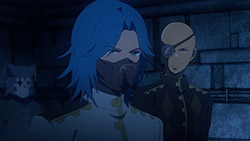 |
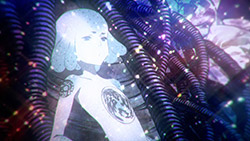 |
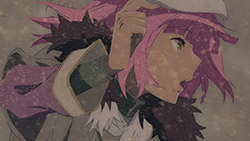 |
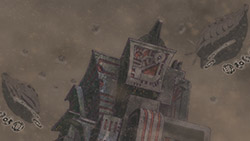 |
 |
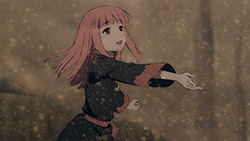 |
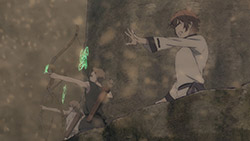 |
 |
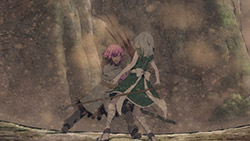 |
 |
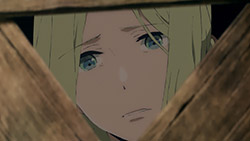 |
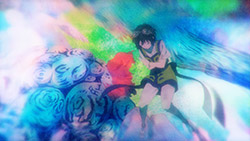 |
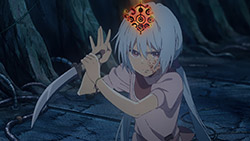 |
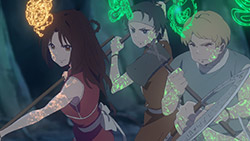 |
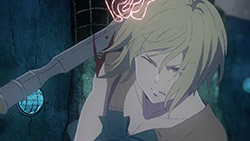 |
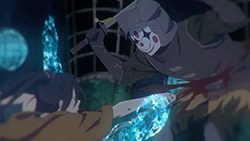 |
 |
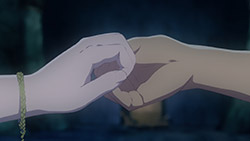 |
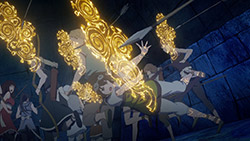 |
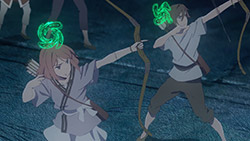 |
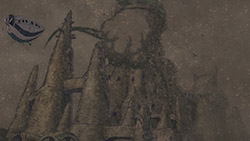 |
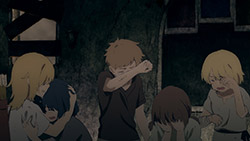 |
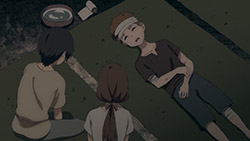 |
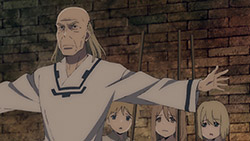 |
 |
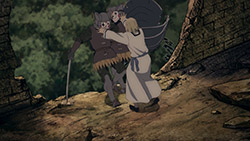 |
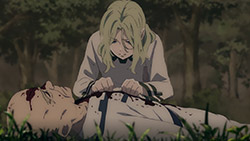 |
 |
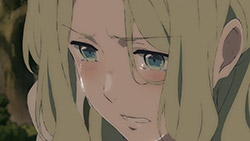 |
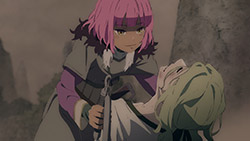 |
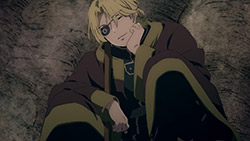 |
 |
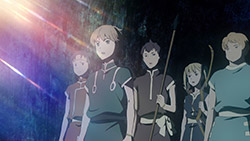 |
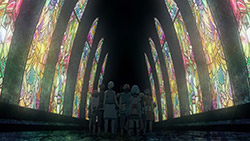 |
 |
 |
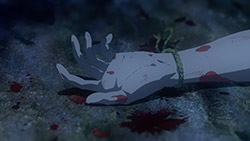 |
 |
「お前たちの未来が見たい」 (Omae tachi no mirai ga mitai)
“I Want To See Your Future ”
Invocation I
The mud whale’s song, of the people I sing,
Made nomadic escape, a frightful fate,
from haughty Empire’s unrelenting hate.
Cursed and exiled from continental shore,
Long labors, both by sea and land, they bore.
– Zaiden’s Rewording of ‘The Aeneid’ by Virgil
Quick Recap: Falaina won’t simply go like lambs to the slaughter, having resolved to fight back against the Empire’s genocidal regime. However, I always had an inkling that things would never be so straightforwards, and that their plan would probably end with many casualties. And as ordained, the mysterious allure of Neri’s singing and dancing starkly contrasted rampant scenes of carnage and destruction. Young kids nonchalantly took lives, trivializing war into fun and games, much to Masoo’s despair. But what other choice could be had, other than accepting a cruel demise? And so they must fight to preserve their existence, turning the sea of sands crimson through violent bloodshed.
As always, proper execution left much to be desired. We were meant to find Hakuji’s passing deeply touching, where he came to regret his prior idea to sink the Mud Whale. To that end, he sought to sacrifice himself for the sake of protecting a younger generation from certain death. Unfortunately, the clumsy way he took out the soldiers left me laughing, which detracted from a moment that should have focused solely on Hakuji’s redemption. Also, I wasn’t too sure about the necessity for Liontari to intrude upon such a delicate moment by suddenly shortening Hakuji’s dying moment. Such was its jarring effect, that it killed the mood for me. Fortunately, the ending somewhat salvaged the momentum.
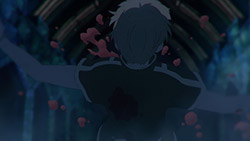 |
 |
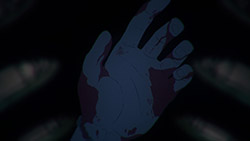 |
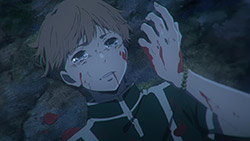 |
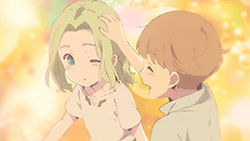 |
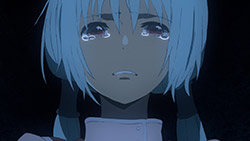 |
 |
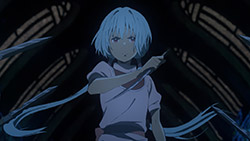 |
 |
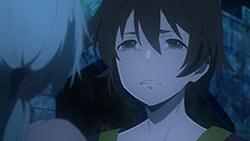 |
 |
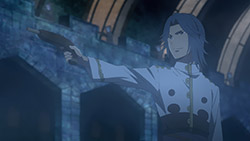 |
 |
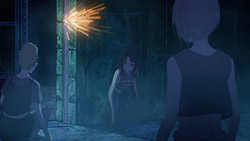 |
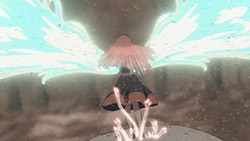 |
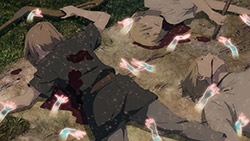 |
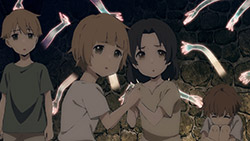 |
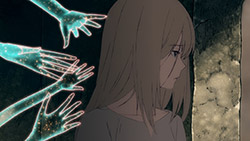 |
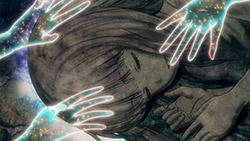 |
 |
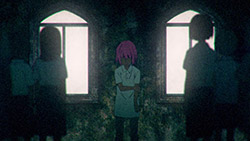 |
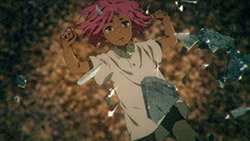 |
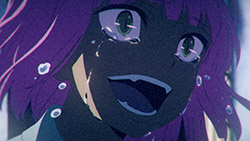 |
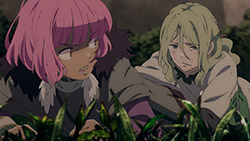 |
 |
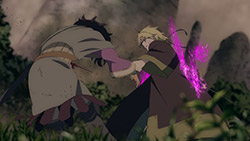 |
 |
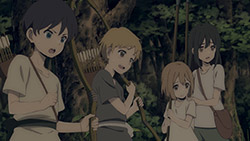 |
 |
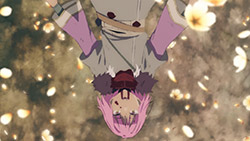 |
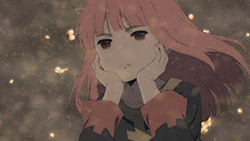 |
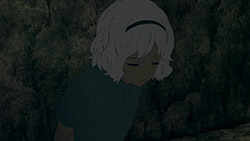 |
 |
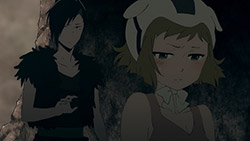 |
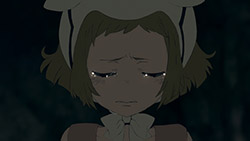 |
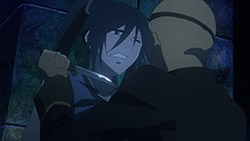 |
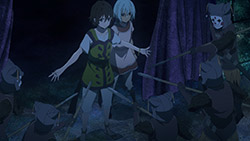 |
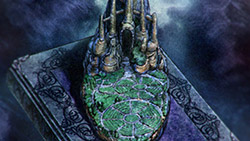 |
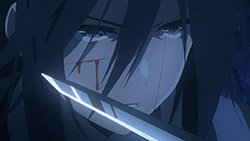 |
「この世から消えてしまえ」 (Konoyo kara kie te shimae)
“Disappear From This World”
Invocation II
Sing, heavenly muse, on top of the sands.
Of Falaina’s first disobedience,
Of the Nous, whose forbidden emotions,
Brought death into the world, and all our woe.
– Zaiden’s Rewording of ‘Paradise Lost’ by John Milton
General Thoughts
There was so much dark beauty, going into the moment where the massacre occurred. Bodies dropped, like marionettes that had their strings cut, emphasising the callous nature in which the guns went about claiming lives. But I really wish we got to know these characters better before they died. I don’t even remember the name of this guy, although he had a memorable trait of patting people on the head. As a result, the impact was very diminished to the point of feeling inconsequential, since no important character got caught up in the ambush.
Speaking of deaths, there was a notable one this episode, with Liontari finally kicking the bucket. Rather than feeling overjoyed, Suou’s vision made me pity the poor boy. From a young age, he was rejected by the Nous, becoming the sole outlier filled with emotions. Had he been born on Falaina, he would have lived an ordinary life. Instead, he’s subject to being an outcast, driven to attempting suicide in a fit of grief and insanity. Above all, he is abandoned by his very own family. Of course, this does not excuse the joy he derives from inflicting suffering and pain upon others. However, it’s not difficult to see why he turned out to have a few screws loose. And seeing the flash of longing in his eyes, when Suou extended an offer to live with them, really hit home that he’d been looking for a place to belong for his whole life.
Unfortunately, he rejects the proposition, and Shuan puts him out of his misery, though his end ultimately came at the hands of the very children he tried to terrorise. While survival is of the utmost priority, it’s saddening that these children are now undergoing experiences, that will devalue their sense for the sanctity of life. Once the war is over, how will they readjust back into times of peace? In that sense, I regard these children as permanently affected for the worse, by circumstances far beyond their control.
Concluding Thoughts
These mysterious tendrils seem to gravitate towards the wounded or deceased, so I’m beginning to wonder if Falaina operates by absorbing the life force of its residents. Could that be the alleged original sin, where an experimentation was made with the Nous, that directly interfered with human life? But it would be difficult to explain why the ancestors would choose such a horrible option, unless life on the mainland became absolutely untenable. To be honest, the Empire doesn’t sound very different from the hell on Earth they ironically ascribe unto Falaina. So I can see the thin veil of logic behind escaping, and retaining full capacity of emotions, at the cost of shortened lives.
Now that the Empire has decided to go after them, their time is almost up – this conflict is simply unsustainable for Falaina. Their population was never large to begin with, yet they lost so many people trying to take out Skylos. In short, any leverage that Falaina gain from superior Thymia is completely outstripped by the Empire’s resources. As such, I find it very difficult to see how they can keep up the fight, let alone prevail. I’m waiting to see our protagonists pull the rabbit out of a hat, because a Deus Ex Machina is pretty much required. So as the crusaders of old would say, ‘deus vult’.
Preview
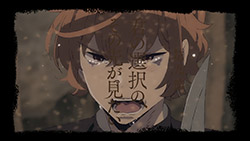 |
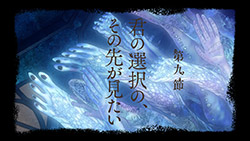 |
 |

I haven’t had much free time so I stopped watching most shows, but I remembered this impressed me in the first two or so eps. Is it still a good watch?
To much stuck on this War thing for me..
Does anyone else think that the “insert song with interpretive dance on top of a fish” was one of the most jarring, out-of-place things they ever saw? Maybe we’ll get an explanation eventually, like in Liontari’s case of someone who was supposed to be emotionless yet clearly full of emotions.
Hey Angelus! Good to see you around these parts. I’m confident we’ll be sure to get an explanation next episode..
For now, I’ll assume this is Ema, who no one can see. She cannot physically intervene with the tide of battle, and I suspect her singing and dancing was meant to invoke the ethereal tendrils seen this episode, which will likely constitute the upcoming Deus Ex Machina. If that were the case, it wouldn’t be so out of place, rather a mystery of Falaina that will soon get unravelled.
Not to mention, if we accept this whole classical civilisation inspiration, I’d say it wouldn’t be odd for muses to sing during a battle, if we imparted such a role into Ema.
Perhaps she is some kind an Sister of Priestess Rory from GATE. She sings to guide the dead souls
I assume it’s some kind of ritualistic thing that’s relevant to what’s going on (it also seems to be linked to the glowy hands appearing everywhere). With that being said, it did feel out of place and kinda irritating because it just seemed to…well, happen.
But if an explanation is given, I’ll probably find it less irritating.
If I had to give an example of where a traditional style insert song didn’t feel out of place, ‘Tooshi Douka’ from Kyoukai Senjou no Horizon is the first thing that springs to mind. Compared to the execution in that series, Kujira admittedly falls short. However, it doesn’t take away from the beauty of the song or the moment, even if it winds up being the cherry on top of my spaghetti >.>
It was very jarring. Not to mention the writing seems poor and the direction as well. Looked visually interesting at the start but very poor execution.
The episodes where disjointed badly at that. Lots of scenes enemies just stood still or even let the protagonists past their encirclement for no reason but to let them get into the shot. Everyone dying has either basically no characterization or deserved to die.
As an associate of mine put it, Kujira tried to put a lot of stock in the action taking place, to portray the horrors of war. Instead, the lack of fluidity during crucial moments detracts from such an attempt, not to mention a lack of thought going forwards. The depiction is subsequently ruined by things that make little sense e.g. enemies standing still, bows holding out evenly against guns, etc. Speaking of which, shouldn’t the Mud Whale citizens just use their stronger Thymia to flip over the miniature flying boats?
An undesired consequence of attempting to focus on the horror of war, while having an absurdly huge cast, is to have very undeveloped characters. Despite being protagonists, I don’t even feel familiar with Chakuro or Lykos. Now we’re about 2/3rds of the way through, something has to change. Kujira has been enjoyable, but has fallen below where I expected it to be.
the one thing that really bothered me was when they stopped when Ouni got injured. Come on! Don’t let it go to waste!
Speaking of Ouni, I’m guessing now that he came from Falaina like Neri and Ema as some kind of warrior.
How is the way Hakuji took out the soldiers clumsy!!? He was an old man with no magical powers or combat training (let alone a weapon), he did all he could do to save the kids and chose -ironically- to suicide with the soldiers taking his own life and theirs after they injured him, the irony (that his redemption was eventually through suicide) for me doesn’t lessen the impact of his heroic death at all.
And yeah Liontari’s apperance and interruption of Hakuji is jarring, but it is meant to be so, it’s a commentary on how life as a whole doesn’t give a damn about your dying words or heroic death, that feeling of life’s indifference is supposed to deepen the feeling of despair and forboding in the current arc.
What you say is true for the most part – I just wish they went about animating it in a different way. His death is no less heroic, but the shine of the moment felt diminished.
You also have a point that it breaks away from the death speech trope, but I didn’t deepen the despair or foreboding feeling. Call me jaded, but even after the redemption, I didn’t like Hakuji enough to take inspiration from his death. To surmise my thoughts, the lack of depth in characterisation is really hurting the series.